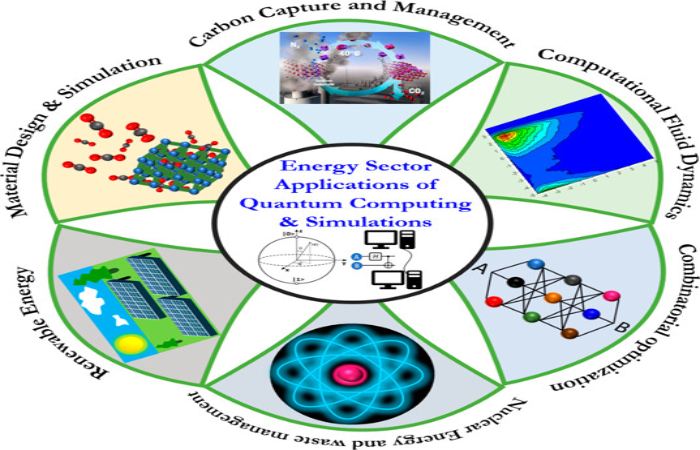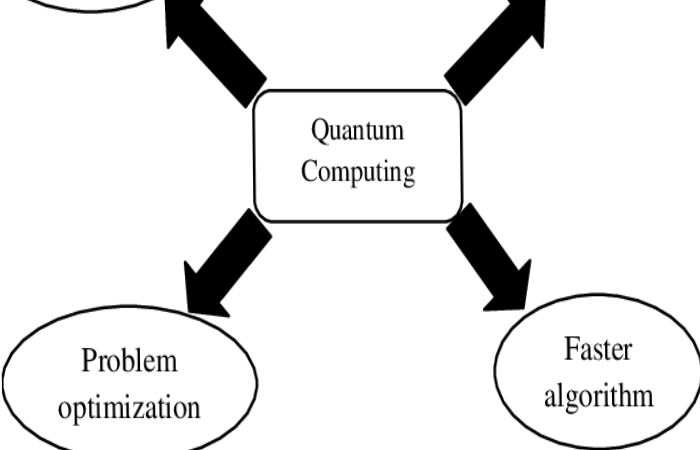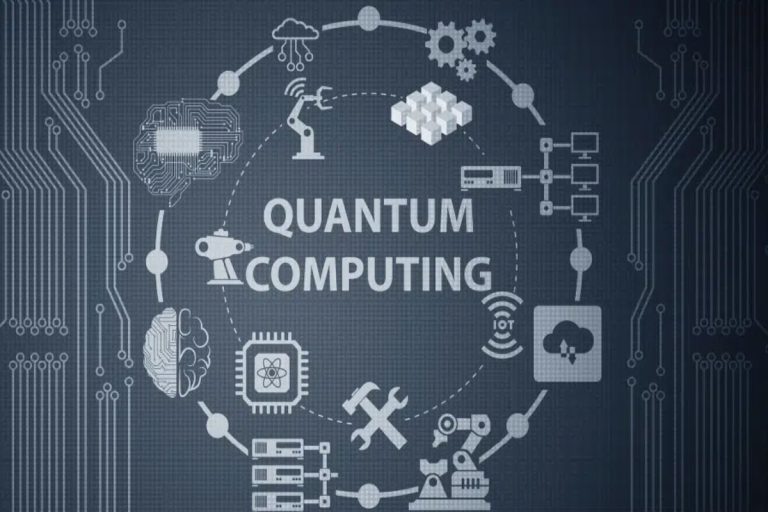Table of Contents
What Is Meant By Applied Quantum Computing

Hello users, here we are going tell you about What Is Meant By Applied Quantum Computing and also Examples Of Potential Applications Of Applied Quantum Computing, Applied quantum computing mentions the application of quantum computing to solve difficulties. And perform tasks in science, engineering, finance, and more. Quantum computing is a kind of computing. That takes benefit of the unique properties of quantum mechanics, such as superposition and predicament. To perform calculations that are beyond the reach of conventional computers.
Practical quantum computing includes developing and applying quantum algorithms and techniques. To solve problems in various areas, such as optimization, machine learning, coding, and simulation. For example, quantum computing can remain used to improve optimization problems’ efficiency, which have many applications in areas like logistics and transportation. And finance. Quantum machine learning algorithms can process big datasets and extract insights, which can remain applied to areas like drug discovery and materials science.
what remains meant by applied quantum computing – Applied quantum computing refers to using quantum computing principles and algorithms to solve real-world challenges. It involves harnessing quantum computers’ unique capabilities to tackle problems intractable for classical computers. This emerging field has the potential to revolutionize various industries and disciplines.
Including:
Materials Science: Quantum computers can simulate the behavior of complex resources at the atomic and molecular level, enabling the development of new materials with enhanced properties for applications in electronics, optics, and energy storage.
Drug Discovery: Quantum algorithms can accelerate the design and optimization of new drugs and therapies by modeling molecular interactions and predicting the effectiveness of potential drug candidates.
Financial Modeling: Quantum computers can analyze large datasets and optimize financial portfolios with unparalleled speed and efficiency, leading to improved risk assessment and investment strategies.
Sustainable Energy Research: Quantum computing can aid in developing efficient and clean energy sources, such as solar cells, batteries, and quantum-powered power grids.
Artificial Intelligence: Quantum computers can enhance machine learning algorithms by providing more complex and powerful computational capabilities, leading to artificial intelligence and machine learning breakthroughs.
Cryptography and Security: Quantum computers can break modern encryption algorithms, necessitating the development of new quantum-resistant cryptography protocols to protect sensitive information.
Optimizing Transportation Networks: Quantum computers can optimize transportation routes and schedules, reducing congestion, improving efficiency, and minimizing environmental impact.
Predictive Modeling and Risk Assessment: Quantum computers can examine vast amounts of data to identify patterns and trends, enabling more accurate predictions and risk assessments in various fields.
Applied quantum computing is still early but is promising to transform numerous industries and disciplines. As quantum computers become more powerful and near, we expect many practical applications to emerge, driving innovation and resolution to some of the world’s most pressing challenges.
Examples Of Potential Applications Of Applied Quantum Computing:

- Developing new drugs and therapies: Quantum computers could remain used to identify new drug targets, design more effective drug molecules, and optimize drug delivery systems.
- Designing new materials: Quantum computers could remain used to create new materials with better properties, such as increased strength, conductivity, or efficiency. This could lead to the development of new products, such as more robust lightweight materials for aerospace applications or more efficient catalysts for chemical reactions.
- Developing new financial algorithms: Quantum computers could remain used to create new financial algorithms for portfolio optimization, risk assessment, and fraud detection. This could lead to more efficient and effective financial markets.
- Enhancing machine learning algorithms: Quantum computers could remain used to improve machine learning algorithms for tasks such as image credit, natural language processing, and anomaly detection. This could lead to the development of more intelligent and autonomous systems.
- Breaking and developing new encryption algorithms: Quantum computers could remain used to break current encryption algorithms, leading to new quantum-resistant cryptography. This protects sensitive information, such as financial data and government secrets.
Applied quantum computing is a rapidly developing field with the potential to revolutionize many industries. As quantum computers become more powerful and nearby, we can imagine seeing many real-world applications emerge.
What is the Application of Quantum Computing?

Quantum computing is a revolutionary new field of technology that harnesses the values of quantum mechanics to achieve computations. Unlike classical computers, which store information in bits that can remain either 0 or 1, quantum processors use qubits, which can simultaneously exist in a superposition principle of 0 and 1. This sole property allows quantum computers to simultaneously perform computations on multiple possibilities, making them exponentially more powerful than classical computers for specific problems.
- Applied quantum computing practically uses principles and algorithms to solve real-world problems. While quantum computers remain still in their early stages of development, they have the potential to revolutionize various industries, including:
- Drug discovery: Quantum computers can simulate the behavior of complex particles at the atomic and molecular level, enabling the development of new drugs with enhanced properties and reduced side effects.
- Materials science: Quantum simulations can predict the properties of new materials with unprecedented accuracy, allowing researchers to tailor materials for specific applications, such as superconductors, batteries, and catalysts.
- Financial modeling: Quantum algorithms can optimize financial portfolios and risk assessments with unparalleled speed and efficiency, leading to improved investment strategies and reduced risk exposure.
- Artificial intelligence: Quantum machine learning algorithms can analyze massive datasets and identify complex patterns and relationships, leading to breakthroughs in natural language processing, image recognition, and fraud detection.
Applied quantum computing is a rapidly evolving field with the potential to transform many industries and disciplines. As quantum computers develop more robust and accessible, we expect many practical applications to emerge, driving novelty and solving some of the world’s most pressing challenges.
Conclusion
Quantum computing holds immense promise for transforming various industries and disciplines. Its unique capabilities, such as superposition and entanglement, enable it to tackle problems intractable for classical computers, paving the way for breakthroughs in drug discovery, materials science, financial modeling, artificial intelligence, cryptography, and scientific research.


